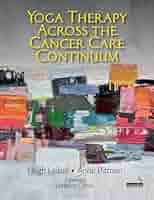
**Yoga Therapy in Cancer Care: A Clinical Companion to Healing**
Many individuals link yoga to wellness sessions, flexibility, and stress alleviation. Rarely do they envision it being utilized within a hospital setting by someone receiving chemotherapy or recuperating from surgery. However, at premier cancer facilities, yoga therapy transforms patient care from within. It acts not as a substitute for medicine but as a clinical ally—a therapeutic approach aimed at diminishing suffering and fostering healing in medically integrated formats.
**Yoga’s Therapeutic Role in Cancer Treatment**
Yoga therapy, crafted specifically for cancer patients, is progressively being woven into treatment protocols at reputable cancer institutions. Unlike conventional yoga classes that prioritize intense physical positions, yoga in a medical environment highlights adaptability and mindfulness, tailored to the specific needs and restrictions of patients. Its purpose is to ease the physical and emotional repercussions of cancer and its treatments, thus enhancing overall life quality.
**Addressing Physical and Emotional Side Effects**
Cancer therapies, including chemotherapy, radiation, and surgical procedures, frequently bring along various side effects, from fatigue and discomfort to anxiety and sadness. Yoga therapy provides gentle movements, breathing practices, and meditation strategies that can assist in managing these symptoms. Studies indicate that yoga can considerably lessen fatigue, boost sleep quality, and uplift mood, rendering it an essential resource for comprehensive patient care.
**Smitha Mallaiah’s Contributions**
Smitha Mallaiah, a notable yoga therapist at a top cancer center, has played a crucial role in weaving yoga into traditional cancer treatment. With profound insight into the impacts of cancer and its therapies on both body and mind, she customizes yoga sessions to meet the distinct needs of each patient, concentrating on re-establishing balance and facilitating recovery. Her contributions highlight the increasing acknowledgment of yoga therapy as a vital facet of integrative oncology.
**Yoga as a Bridge to Healing**
Yoga therapy acts as a conduit between conventional medicine and holistic healing. It empowers patients by providing them with a sense of agency over their symptoms and an active role in their recovery process. Through regular practice, numerous patients report feeling more invigorated, less apprehensive, and better prepared to manage the challenges of cancer treatment.
**The Growing Acceptance of Integrative Approaches**
As the evidence supporting yoga’s advantages continues to accumulate, more medical practitioners are advocating for its inclusion in a thorough cancer care strategy. Insurance providers are beginning to acknowledge its therapeutic merits, which may result in broader access and coverage of yoga therapy within healthcare environments.
**Conclusion**
Yoga therapy in cancer care illustrates a modern transition towards integrative medicine, where the emphasis lies not solely on combating the illness but also on enhancing the patient’s overall wellness. By alleviating suffering and endorsing healing, yoga offers a complementary route to recovery, fostering resilience and optimism for those confronting the significant challenges of cancer treatment. As more studies come to light, yoga therapy is likely to become a fundamental element of the healing journey in oncology.